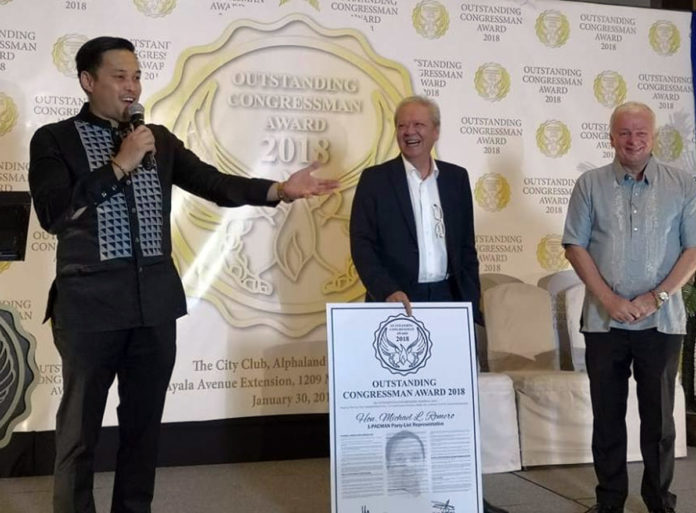
To provide a more efficient Information and Communication Technologies (ICT) and Broadband services, particularly on the unserved and underserved areas, 1Pacman party-list Rep. Mikee Romero has filed a measure creating a comprehensive National Broadband Development Act.
House Bill No. 185 seeks to create and establish a comprehensive Broadband control and management framework to enable all concerned and affected personnel and organizations to carry out their unique role in helping achieve the government’s economic plans and projects.
“The state recognizes that it is imperative to prioritize and provide the suitable tools and means to make way for the needed infrastructure to interconnect government agencies and consolidate numerous agency data centers that can provide services such as cloud computing web hosting and server colocation,” Romero said.

Apart from providing for a comprehensive National Broadband Development Act, HB 185 also aims for helping the development of ICT infrastructures and mechanisms, and to augment the demands for internet speed and network connectivity.
Under the bill, the state shall create a National Broadband Development Act to expand and establish ICT infrastructures, to foster the continuity of ICT-Broadband based services to aid and support the government’s economic objectives that includes the vital role of an efficient Broadband infrastructure in our nation building; to ensure the provision of strategic, reliable, cost-efficient and citizen-centric election technology, infrastructure systems and resources; to ensure universal access to quality services; to promote the development and widespread use of emerging new ICT technologies; and to ensure the availability and accessibility of services in all areas.
To foster an integrated and automated policy environment that will promote a broad market-led development of the ICT-enabled services; to promote the use of modern ICT base mechanisms and technologies for the enhancement of key public services, such as education, public health and safety, revenue generation and socio-civic purposes; to encourage the use modern ICT mechanisms and technologies for the development and promotion of the country’s election procedures, and national identity.
To promote digital literacy, ICT base expertise, and knowledge building among citizens to enable them to participate and compete in an evolving ICT age; to empower, through the use of ICT concepts, the disadvantaged segments of the population, including the elderly, persons with disabilities and indigenous and minority groups; to ensure the rights of individuals to privacy and confidentiality of their personal information; to ensure the security of critical ICT infrastructures including information assets of the government; and to provide oversight, governance and regulating the ICT sector and ensure voters protection and welfare, data privacy and security.








































